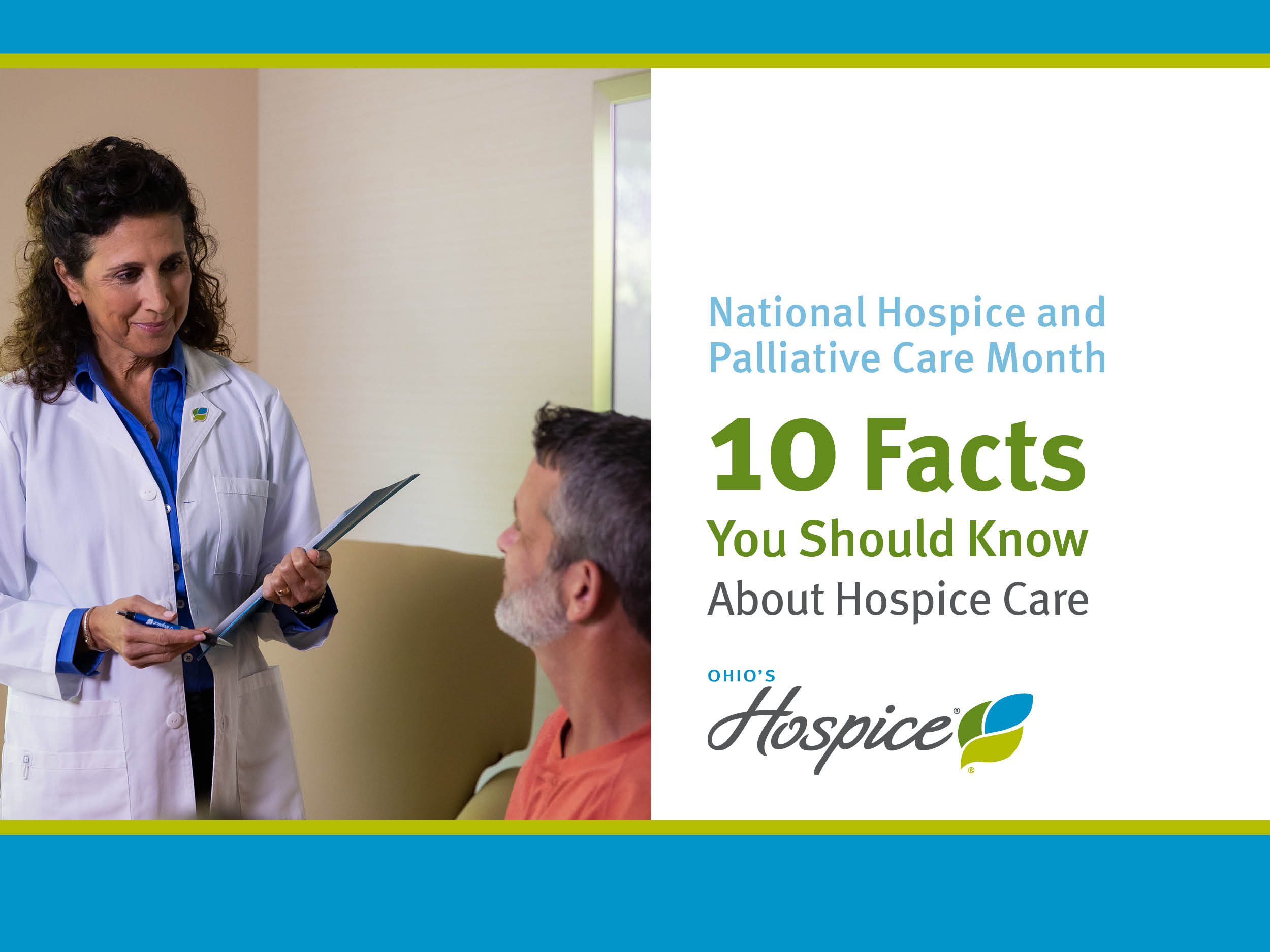10 Facts About Hospice Care You Need to Know

Hospice care can be a difficult subject to talk about. It’s a conversation many people struggle with but one that we have every day. The team at Ohio’s Hospice understands that selecting hospice care for your loved one can be a daunting task, and we are here to help you better understand the supportive and comfort care available through our services.
We’ve created tools and resources that you can use to help you have courageous conversations about hospice care and answer questions you may have when your loved one is facing a life-limiting illness.
Better understand hospice care with these 10 facts:
1. Hospice care usually takes place in the comfort of an individual’s home.
Hospice care usually takes place in the comfort of an individual’s home, but it can be provided in any environment in which a person lives, including a nursing home, assisted living facility or residential care facility, or one of our Hospice Houses or inpatient care centers.
2. Receiving hospice care does not mean giving up hope.
Receiving hospice care does not mean giving up hope or that death is imminent. The earlier an individual receives hospice care, the more opportunity there is to stabilize a patient’s medical condition and address other needs. Hospice care focuses on quality of life and making the most of life. Hospice care helps patients experience joy, reminiscence, laughter, reunion and hope.
Click here to read more about who is eligible for hospice care.
3. Studies have shown that hospice care can increase survival rates.
Studies have shown that hospice care can actually increase a patient’s survival rate for certain diagnoses when implemented early enough in the disease process. Increased survival under hospice care is due to close monitoring, treatment of symptoms, and an interdisciplinary approach to patient care.
4. Hospice care is provided by a specialized team.
The hospice care team includes physicians, nurses, social workers, home health aides, volunteers, chaplains, and bereavement counselors. The care team visits patients on a schedule based upon individual need. Our care is available when you need it.
5. The Medicare benefit, and most private insurance, pays for hospice care.
The Medicare benefit, and most private insurance, pays for hospice care as long as the patient continues to meet certain requirements. Patients may come on and off hospice care and re-enroll in hospice care, as needed.
6. Palliative care is specialized healthcare for people living with a serious illness.
Palliative care is specialized healthcare for people living with a serious illness. This type of care is focused on providing relief from the symptoms and stress of a serious illness, and it is based on need, not prognosis. The goal is to improve quality of life for both the patient and family.
7. Palliative care is provided at many locations.
Palliative care is provided at assisted living facilities, individual homes, hospitals, and nursing facilities.
8. Anyone with a serious illness at any stage of their disease can be treated.
Anyone with a serious illness at any stage of their disease can be treated. Symptoms will be relieved as much as possible.
9. Palliative care is provided by a specially trained team.
Palliative care is provided by a specially trained team of physicians, nurses and other clinicians who work together with the patient’s community physicians to provide an extra layer of support. It is appropriate at any age and stage in a serious illness, and it can be provided along with curative treatment.
10. Payment for palliative care depends on your Medicare and insurance benefits.
Payment for palliative care depends on your Medicare and private insurance benefits, as well as your treatment plan.
When a loved one is facing a life-limiting illness or injury, you want them to receive the best quality care. Hospice and palliative care can provide your loved one with compassionate, high-quality care that preserves their comfort and dignity.
Considered to be the model for high-quality, compassionate care for people with a life-limiting illness, hospice care includes expert medical care, pain management, and emotional and spiritual support. Care is provided by an interdisciplinary care team of professionals and trained volunteers, and the wishes of the patient and family are always at the center of your loved one’s care.
If you have any additional questions, please call us at 800.653.4490.

